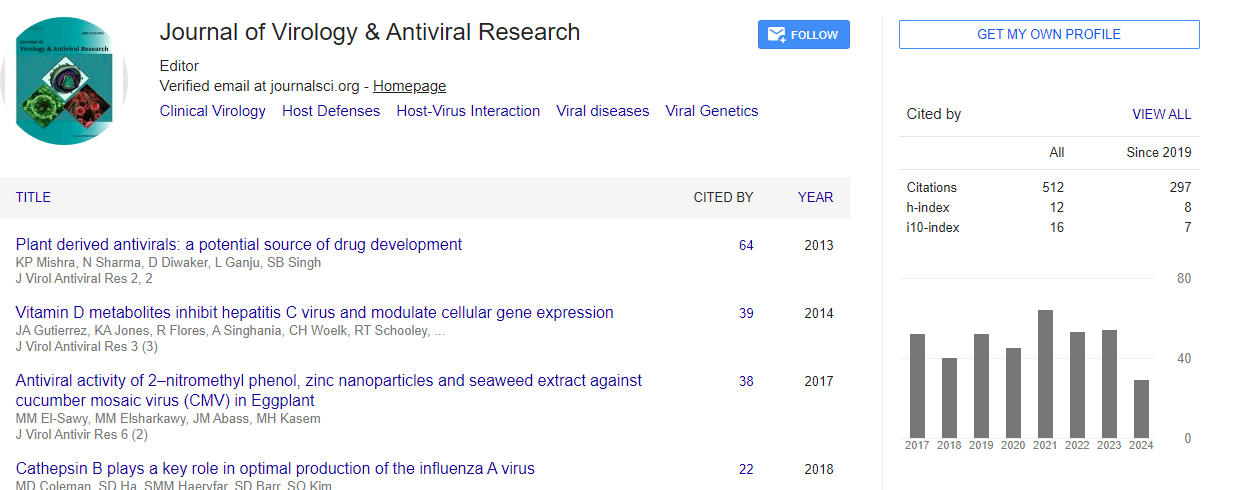Antiviral activities from selected cholistani plants against common viral diseases of poultry birds
Hina Ashraf, Mirza Imran Shahzad, Mariam Naseer, Summayya Anwar, Noor Saba, Aasma Manzoor, Zahra Aslam and Uzma Rani
Government Sadiq College Women University, Pakistan
The Islamia University of Bahawalpur, Pakistan
: J Virol Antivir Res
Abstract
The idea of herbal medicine is getting popular day by day and demand of herbal products is continuously rising due to its usefulness, limited side effects and cost effectiveness. Cholistani plants are reported as rich source of antibacterial, antifungal, antiprotozoal, antioxidant and anticancer agents but their antiviral potentials were not explored before. The current study was designed to assess antiviral capabilities of selected cholistani plants. The whole plants were collected and authenticated by taxonomist. Plants were shade dried and powdered form was used to make extracts with methanol, n-hexane, ethyl acetate and n-butanol. These extracts were concentrated by using rotary evaporator and 0.5 g each precipitate was dissolved in 1 mL of respective solvent to make final extract. All of these fractions were tested for their antiviral potentials through 9 to 11 days old chick embryonated eggs. HA test was performed to asses’ antiviral potential of each fraction against Avian Influeza virus H9N2 strain, Newcastle disease virus LaSota strain and infectious bronchitis virus similarly, IHA test was used quantification of infectious bursal disease virus. The order of antiviral activities of cholistani plants were Newcastle disease virus>Infectious bronchitis virus> Infectious bursal disease virus>Avian influenza virus (NDV>IBV>IBDV>AIV). In terms of antiviral activity from different fractions, the order of activity was n-butanol>ethyl acetate>methanol>n-hexane. The extracts of medicinal plants A. aspera, N. procumbus, P. antidotale, O. compressa and S. fruticose were effective against all four poultry viruses. The low IC50 values of these plant extracts confirm the very high antiviral potentials of these plants against above mentioned poultry viruses. It is worth to mention that all extracts of A. aspera were positive against IBDV (Infectious Bursal Disease Virus), which has no treatment in market so far.
Biography
Hina Ashraf has expertise in plant biotechnology and medicinal plants. She is associated as a Faculty Member in the Department of Botany with Government Sadiq College Women University Bahawalpur, Pakistan since 2014. She has supervised many research students and also has played an active role in winning projects for her department. She has expertise in evaluation of anti-bacterial, anti-viral, anti-oxidant anti-diabetic and many other biological activities of cholistani medicinal plants.
E-mail: hinaimranmirza@gmail.com
 Spanish
Spanish  Chinese
Chinese  Russian
Russian  German
German  French
French  Japanese
Japanese  Portuguese
Portuguese  Hindi
Hindi 

